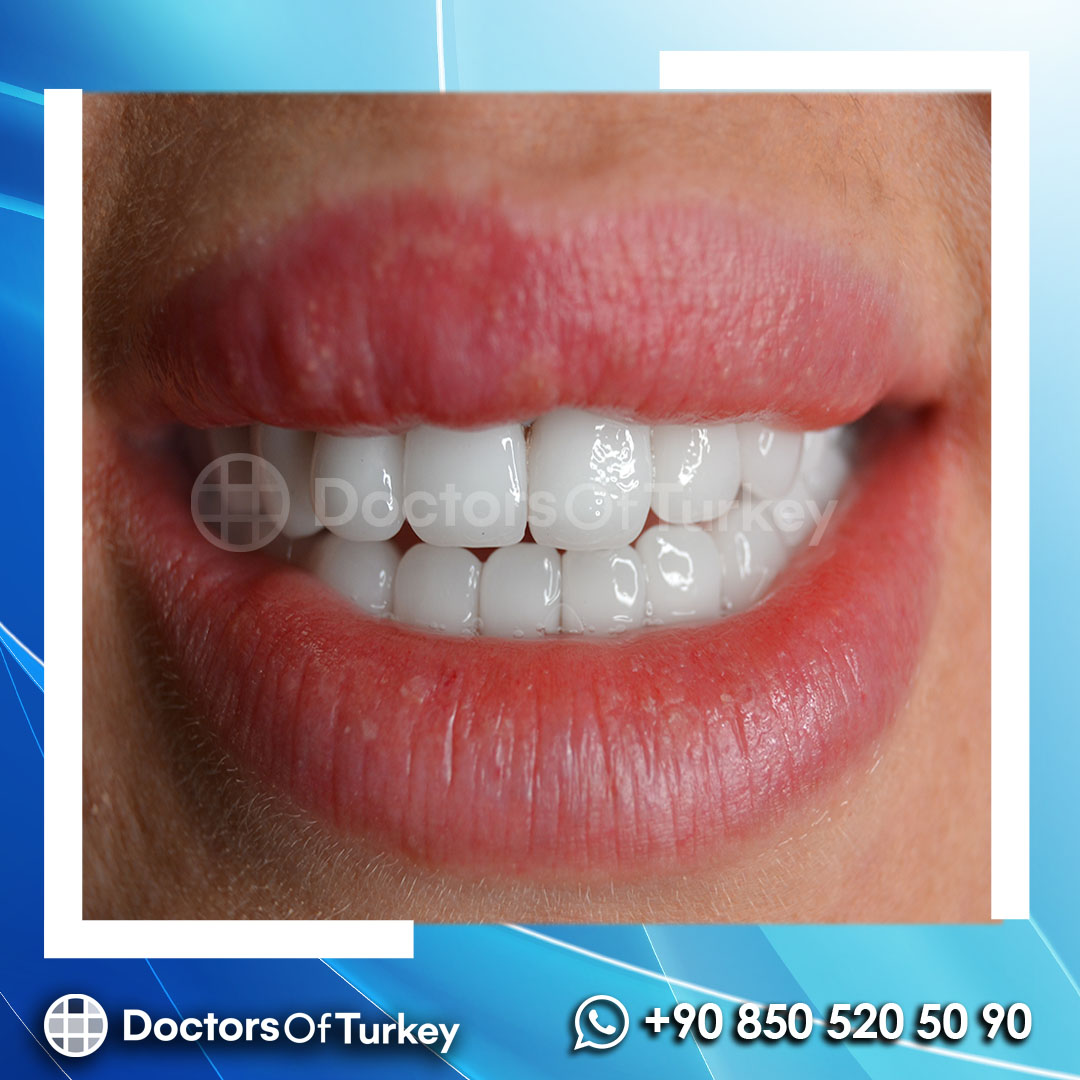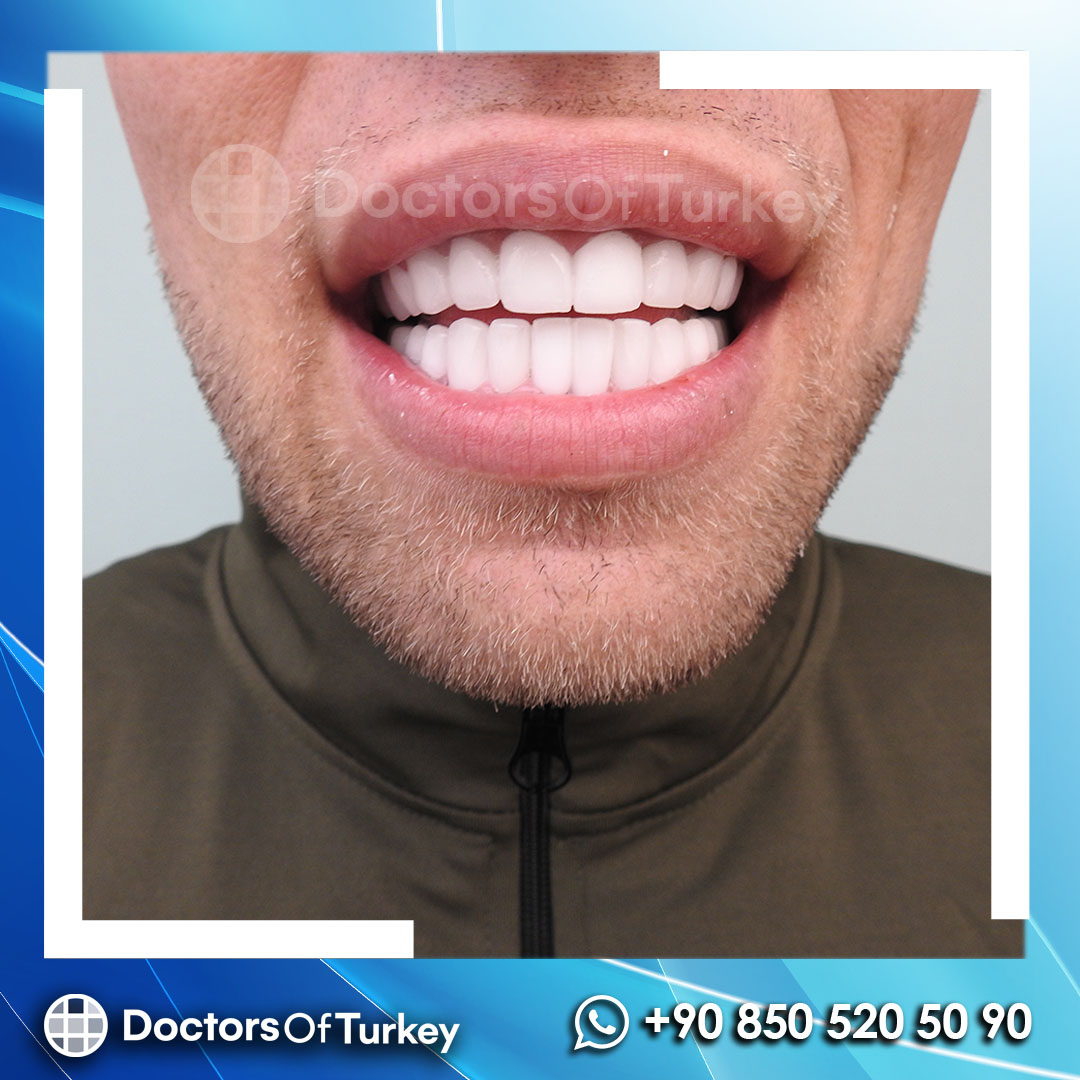Teeth Whitening
Why is Teeth Whitening Needed?
The appearance of the teeth is very important, especially for people who attach importance to hygiene and aesthetics and fulfill their personal care completely. Teeth whitening has a positive effect on appearance. As in the past, natural teeth whitening methods can be applied in the home environment by using herbal methods today. However, thanks to the development of technology and science in dentistry, many color, shape and position disorders related to teeth can be easily treated. In addition to the use of products such as baking soda and whitening toothpastes at home, there are also some medical teeth whitening treatments applied by dentists. Among these, the method of whitening colored teeth is more economical, easy and effortless compared to other restorative methods.
How Do Teeth Lose Their Whiteness?
The most basic question of the need for teeth whitening is how teeth lose their whiteness. Structural disorders in childhood and some antibiotics exposed during infancy can color the teeth. The amount of fluoride in the foods and beverages that are frequently consumed in daily life and the water that is drunk can cause discoloration on the teeth. This color change that occurs in the teeth is divided into two as internal coloration and external coloration:
Internal discoloration occurs due to structural defects. Stains that are located inside the tooth and cannot be removed by brushing the teeth are classified as internal discoloration. Structural disorders that occur during the formation of teeth (due to drugs or excessive fluoride intake, etc.) are also included in this class. Teeth whitening is usually very successful in this and similar cases.
Are There Any Side Effects of Teeth Whitening Process?
Teeth whitening is a treatment that is generally used by people who want to have healthy-looking, white and bright teeth. Teeth whitening is a treatment that dentists frequently apply and demand is high in recent years. Food and beverages, tobacco products and alcohol that we consume in our daily lives cause various sensitivities and changes in our teeth. One of them is the formation of stains on the teeth and the yellowing of the teeth. When teeth are not brushed regularly, they start to turn yellow and cause problems such as bad breath, cavities and tartar. Among these reasons are yellowing and stains.
Especially tea, coffee, cigarettes, acidic and very sugary drinks play a big role in yellowing teeth and losing their own color. The teeth whitening process removes the yellowing and staining caused by these substances.
What are the Side Effects of Teeth Whitening?
In the teeth whitening process, all whitening gels cause more or less sensitivity in the teeth. This sensitivity to cold-hot foods or breathing air can cause serious discomfort and negatively affect social life. This is a normal and expected side effect of teeth whitening. If the sensitivity does not go away within 2 days at the latest, it means that the teeth do not accept the whitener structurally and the use of the whitener may need to be discontinued. In case of sensitivity, the fluoride that the dentist will apply and the toothpaste or creams that he will recommend to you will reduce this tooth sensitivity. To reduce the sensitivity caused by teeth whitening, toothpastes containing potassium nitrate can also be used as another option.
There are various methods of teeth whitening. Generally, the teeth are bleached with “carbamide peroxide” in the methods used. This hydrogen peroxide and urea break down and target tooth color in a chemical reaction. This process is one of the safest ways to whiten teeth. One of the highlights of whitening is that it responds instantly. In other words, after the procedure, the teeth become whiter quickly and gain a bright and lively appearance.
Apart from this known method, there is also a method of applying the generally used dental gel to a blue light. However, care should be taken as UV rays are used in this treatment. Because these UV rays can cause various burns in the mouth.
Does Teeth Whitening Damage Tooth Structure?
It can be thought that tooth whitening damages the tooth structure due to the chemicals used. On the contrary, the chemicals used are chemicals that whiten the teeth and remove stains, while at the same time strengthening the tooth structure. In line with clinical studies, no side effects or harms of teeth whitening have been observed. However, the teeth whitening process should proceed under the control of the dentist. If there is a structural problem or caries in the tooth during the teeth whitening process, this problem should also be resolved. Therefore, this treatment is important not only in terms of aesthetics, but also in terms of oral and dental health.
Does Sensitivity Occur After Teeth Whitening?
The gels used in teeth whitening can cause sensitivity in the teeth. But this is normal. It is necessary not to consume hard foods for a short time due to sensitive teeth. At the same time, cold-hot food and drinks should not be consumed for a while. However, if this sensitivity does not go away within 1 or 2 days, the use of gels should be suspended. At the same time, toothpaste containing potassium nitrate can be used to relieve this sensitivity. Strengthening and relaxing tooth enamel is also among the effects of potassium nitrate.
I have decided to whiten teeth, what should I do?
Please contact us from the price section on our website or through our communication channels. Our expert operation team organizes the doctor, hospital, accommodation and transfer procedures for you from start to finish.


































